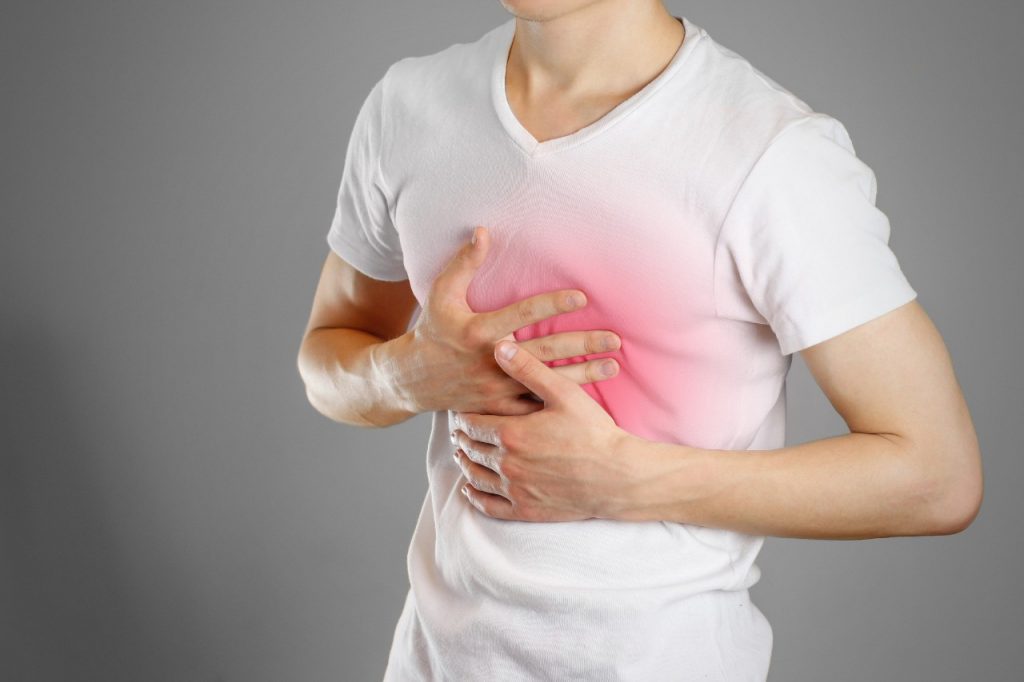Gastroesophageal reflux disease, commonly known as GERD, is a prevalent digestive disorder that affects millions of people worldwide. It occurs when stomach acid flows backward into the esophagus, causing a range of uncomfortable symptoms. In this comprehensive article, we will delve into the world of GERD, exploring its causes, symptoms, complications, and various treatment options to help those affected better manage their condition and improve their quality of life.
I. What is GERD?
A. Definition
GERD is a chronic digestive disorder characterized by the abnormal reflux of stomach acid into the esophagus. This reflux can lead to irritation, inflammation, and damage to the esophageal lining, resulting in a variety of symptoms.
B. The Role of the Lower Esophageal Sphincter (LES)
The lower esophageal sphincter is a muscular ring located at the junction between the esophagus and the stomach. Its primary role is to prevent the backward flow of stomach contents into the esophagus. In individuals with GERD, the LES may weaken or relax abnormally, allowing acid and digestive juices to move up into the esophagus.
II. Causes and Risk Factors
A. Weakening of the LES
 Several factors can contribute to the weakening of the lower esophageal sphincter, including:
Several factors can contribute to the weakening of the lower esophageal sphincter, including:
- Hiatal Hernia: A condition in which a portion of the stomach protrudes through the diaphragm into the chest cavity, putting pressure on the LES.
- Obesity: Excess body weight, particularly around the abdomen, can increase abdominal pressure and weaken the LES.
B. Dietary and Lifestyle Factors
Certain dietary and lifestyle choices can exacerbate GERD symptoms:
- Spicy and Fatty Foods: Foods high in fat and spices can relax the LES and promote acid reflux.
- Caffeine and Alcohol: These substances can relax the LES and stimulate acid production.
- Smoking: Smoking can weaken the LES and irritate the esophageal lining.
- Large Meals and Eating Before Bed: Overeating or lying down shortly after a meal can increase the risk of acid reflux.
III. Common Symptoms
GERD presents a range of symptoms, which can vary in severity among individuals. Common symptoms include:
- Heartburn: A burning sensation in the chest that often occurs after eating or lying down.
- Regurgitation: The sensation of stomach acid or food coming back into the mouth or throat.
- Difficulty Swallowing: Known as dysphagia, this symptom may be a sign of esophageal narrowing or inflammation.
- Chronic Cough: A persistent, dry cough can be a result of acid irritating the throat and airways.
- Sore Throat and Hoarseness: Acid reflux can irritate the throat, leading to these symptoms.
IV. Complications
If left untreated, GERD can lead to more severe complications, including:
A. Esophagitis
Chronic exposure to stomach acid can cause inflammation and damage to the esophageal lining, leading to a condition called esophagitis. This can result in pain, difficulty swallowing, and bleeding.
B. Barrett’s Esophagus
In some cases, long-term GERD can lead to changes in the cells lining the lower esophagus, a condition known as Barrett’s esophagus. This condition increases the risk of esophageal cancer.
C. Stricture
Chronic inflammation and scarring can cause the esophagus to narrow, making it difficult to swallow.
D. Respiratory Issues
Aspiration of stomach contents into the lungs can lead to respiratory problems, such as asthma, bronchitis, or pneumonia.
V. Diagnosis
If you experience persistent or severe symptoms of GERD, it’s essential to seek a medical evaluation. A healthcare provider will typically perform the following to diagnose GERD:
A. Medical History and Symptom Assessment
Your healthcare provider will inquire about your symptoms, their frequency and severity, and any factors that worsen or alleviate them.
B. Physical Examination
A physical examination can help rule out other potential causes of your symptoms.
C. Upper Endoscopy (EGD)
An EGD involves the insertion of a thin, flexible tube with a camera (endoscope) into the esophagus to visually inspect the lining for signs of inflammation, damage, or other abnormalities.
D. Esophageal pH Monitoring
This test measures the acidity levels in the esophagus over a period of time to determine if acid reflux is occurring.
VI. Treatment Options
 Effective management of GERD often involves a combination of lifestyle modifications, medications, and, in some cases, surgical intervention. Here are some common treatment approaches:
Effective management of GERD often involves a combination of lifestyle modifications, medications, and, in some cases, surgical intervention. Here are some common treatment approaches:
A. Lifestyle Modifications
- Dietary Changes: Avoiding trigger foods and beverages such as spicy, fatty, and acidic items can help reduce symptoms.
- Eating Habits: Eating smaller, more frequent meals and avoiding lying down for at least two hours after eating can minimize reflux.
- Weight Management: Achieving and maintaining a healthy weight can reduce pressure on the LES.
- Elevating the Head of the Bed: Sleeping with the upper body elevated can help prevent acid reflux during the night.
B. Medications
- Antacids: Over-the-counter antacids can provide temporary relief by neutralizing stomach acid.
- H2 Blockers: These medications, like ranitidine (Zantac) and famotidine (Pepcid), reduce acid production in the stomach.
- Proton Pump Inhibitors (PPIs): Prescription-strength medications like omeprazole (Prilosec) and esomeprazole (Nexium) can effectively reduce stomach acid production and promote healing of the esophagus.
C. Surgery
In cases where lifestyle modifications and medications do not provide adequate relief, surgical intervention may be considered. Procedures such as fundoplication can help reinforce the lower esophageal sphincter. GERD is a prevalent digestive disorder that can significantly impact a person’s quality of life if left untreated. Understanding its causes, symptoms, and potential complications is crucial for timely diagnosis and effective management. By adopting lifestyle modifications, taking prescribed medications, and, if necessary, exploring surgical options, individuals with GERD can find relief from their symptoms and reduce the risk of complications. If you suspect you have GERD or are experiencing persistent symptoms, consult a healthcare provider for a proper evaluation and personalized treatment plan.



 Several factors can contribute to the weakening of the lower esophageal sphincter, including:
Several factors can contribute to the weakening of the lower esophageal sphincter, including: Effective management of GERD often involves a combination of lifestyle modifications, medications, and, in some cases, surgical intervention. Here are some common treatment approaches:
Effective management of GERD often involves a combination of lifestyle modifications, medications, and, in some cases, surgical intervention. Here are some common treatment approaches: Meal Timing and Positioning:
Meal Timing and Positioning:
